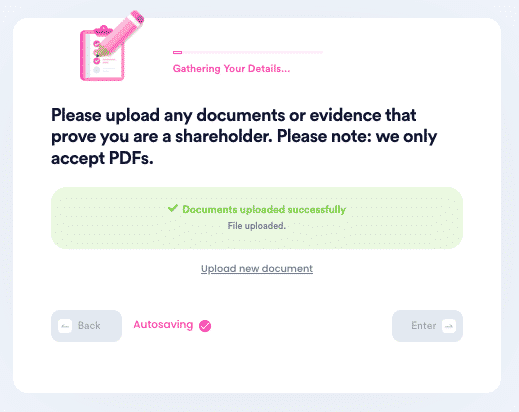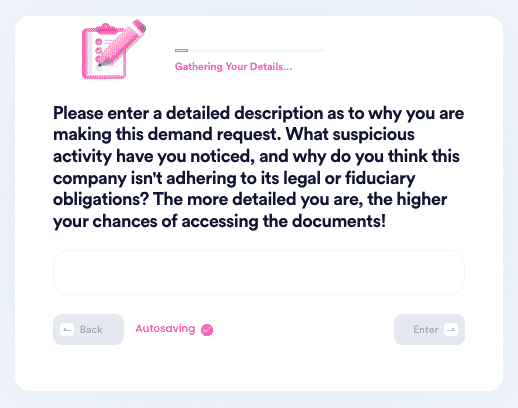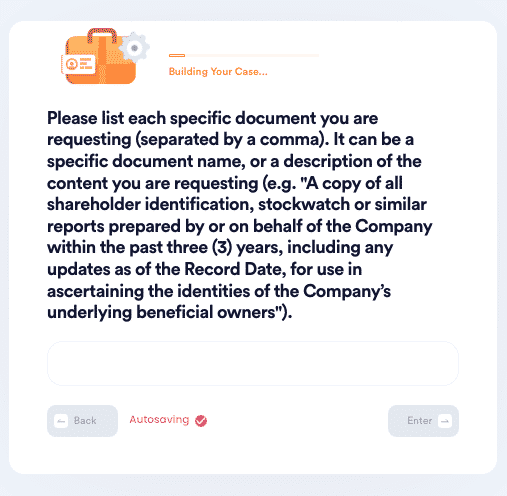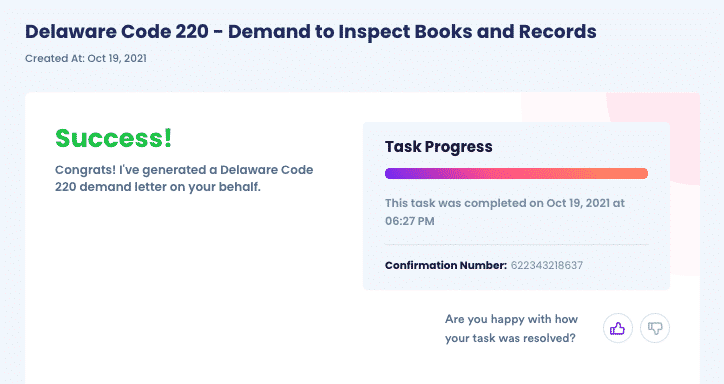Scope of Inspection Under DGCL § 220: What's a "Proper Purpose"?
When you put money in the stock market, you are essentially buying a small portion of the companies you're investing in. Think of a company like Facebook or GM as the world's biggest pie, and when you purchase a share, you are an owner of the company. Sure, it takes millions of shares to have any real influence as an owner, but even one share guarantees you the same rights as the big institutional investors.
What IS DGCL 220?? And Why Do Companies Incorporate In Delaware?
Before we get into the, you should have a little understanding of why companies choose to incorporate in the state of Delaware, even if they are officially headquartered somewhere else.
Delaware has the reputation for being the most business-friendly state in the US–so much that it's considered the " Incorporation Capital of the World". These are some of the reasons that choosy companies choose Delaware.
- The best liability protection in the US
- Tax exempt status for Delaware corporations, regardless of where they do business
- No inheritance taxes on stocks held by non-Delaware residents
- No state sales tax on intangible personal property (specifically, royalty payments)
Delaware Court of Chancery
The biggest advantage, though, is that Delaware is the only state that has a dedicated business court, the Delaware Court of Chancery. This court relies on judges instead of juries to decide cases, so any decisions are made much more quickly than in traditional courthouses. The Chancery court also is the source for the most up-to-date corporate case law in the country.
Delaware General Corporation Law, Section 220
So, back to Section 220 of the DGCL. This is the statute that allows you, an ordinary shareholder, to demand–and receive—copies of the books and records of the corporation. If you're new to the world of corporate law, this means that you have the right to access the following information.
| Type Of Document: | Purpose Of Document: |
| Corporate stock ledger | A list of shares held by people at the corporate level |
| List of stockholders | The names of shareholders who hold over a certain number of shares in the company |
| Other books and records | Other documents permitted to be obtained by shareholders under Delaware law |
What Are "Other" Books And Records?
The Chancery Court defines this as other documents that are narrowly tailored and essential to the demand. As a stockholder, when you request the information available to you under Section 220, you are entitled to review only the documents that are necessary under the conditions of your demand.
Why Would I Make A Books And Records Demand Under Section 220?
As a shareholder, you can make a books and records demand if you suspect the company of any kind of malfeasance or fiduciary wrongdoing.
You do need to present some kind of proof–a proper purpose, according to the language in DGCL 220— to back up your suspicions. You can't just demand to see the records without fairly credible reasons. Curiosity is not considered a credible reason, but the bar for records access is generally considered to be fairly low.
Here's an example. You see that a company you've invested in is considering buying a competitor at a price that seems really high. A quick Google search reveals that the CEO is the target company's CEO's college roommate, but that isn't mentioned anywhere in the official information regarding the purchase. You suspect the acquisition is because of personal instead of professional reasons.
You can get additional benefits by requesting official information such as:
- Peace of mind that you are getting the best possible information about a company you own
- Access to as much data as possible before making a decision to buy or sell more shares
- A detailed telling of what is happening behind the scenes with the companies you own
How Would I Make The Official Request?
Your evidence—the proper purpose—is that there's a personal relationship between the principals. Here's how you would compose a formal demand under Section 220.
- The demand has to be made under oath
- You must demonstrate you are a stockholder or have power of attorney for the stockholder
- The letter must be addressed to the corporation at its registered Delaware address
- Detailed explanation of the proper purpose
Where Will The Demand Be Filed?
The Chancery Court has made it clear that any Section 220 action must be filed in Delaware, as that's where the Chancery Court is located.
How DoNotPay Makes It Easy To File A Section 220 Demand
If all this seems tedious and hardly worth it, let DoNotPay handle your demand for books and records. We have the technical expertise to make the demand correctly, so that you can start your investigative process more quickly.
If you want to submit a Delaware Code 220 request but don't know where to start, DoNotPay has you covered.
Create your own cancellation letter in 3 easy steps:
- Search Delaware Code or Stock Inspection on DoNotPay.

- Confirm that the company you are hoping to inspect is a Delaware Corporation and that you are a stockholder.

- Tell us why you are requesting the information and what you plan on doing with it.

- Specify the names or types of documents you are requesting.

- That's it! DoNotPay will generate the formal request letter on your behalf and send it to the company.

DoNotPay Can Help You Solve Other Problems, Too
DoNotPay is your solution for most of your issues. Our state of the art AI is merged with the latest in case law from all over the country, so wherever you are, we have the know-how to address your concerns with the right organizations—so you get the outcome you deserve faster. Whether you need some help with parking tickets, working with consulates in the US. or filing a complaint with the SEC, DoNotPay has you covered. When you sign up for our service, we can help you with almost all the small tedium of everyday life—so you can focus on what matters to you.
 By
By